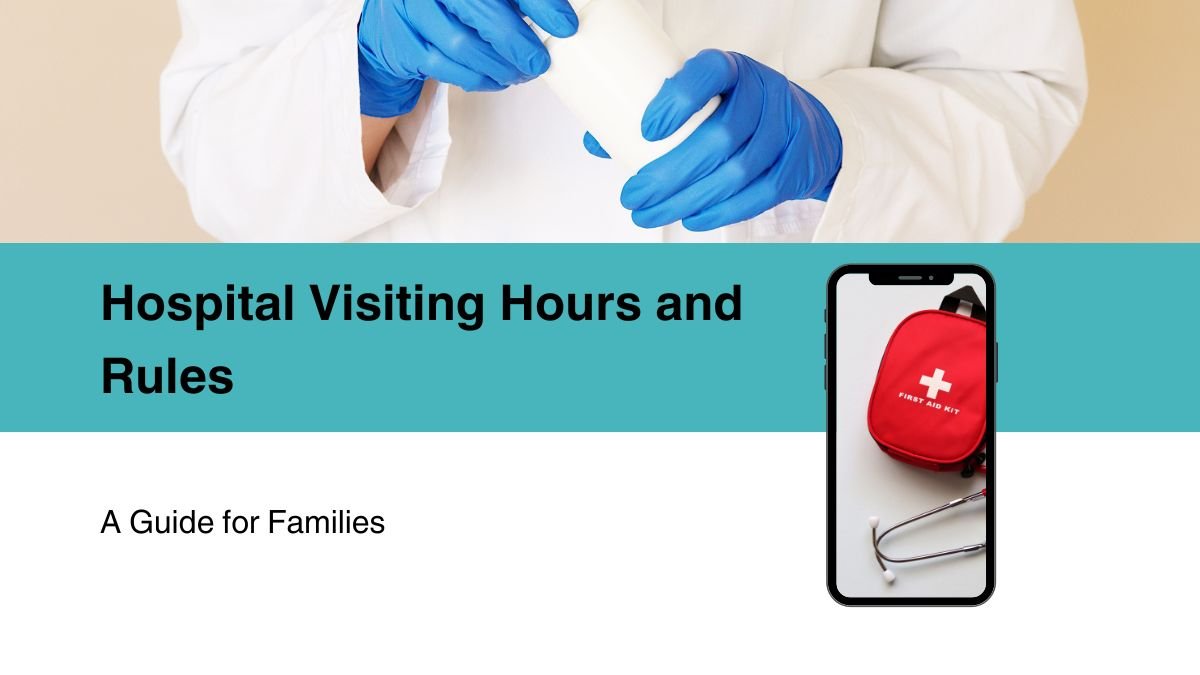Having a child in a hospital for treatment is a painful experience for a parent as well as for the child. The hospital environment is strange, scary, and sometimes pretty upsetting for a young child. Therefore, it is extremely important that one prepares well and communicates with their child, and be most careful.
We understand in this guide what parents can do practically before, during, and looking after their child when in a hospital for improving the experience, making the situation better and safer for a child.
What’s to prepare before going to the hospital
1. Gathering the exigents
It is very helpful to bring some familiar and comforting things for the child.
- Bring the child’s favorite blanket, toys, or stuffed animals.
- Clothes – A clothing change for the child, and for you too. The little one may want to change multiple times in a day.
- Hygiene and personal items – towel, toothbrush, paste, hair brush, etc.
- If your child sleeps at night with a favorite teddy bear, he will be able to be comfortable at night in hospital.
2. Medical and Other Preparations
- Carry medicines and medical equipment from your home, like particular diapers, feeding bottles, and supplies used for infant feeding.
- Carry along the medical records, insurance papers, and proof of identification.
- If your child follows a certain diet, bring the information about and supplies for the food.
3. Make Arrangements for Help and Support
- Ask family or friends to help take care of other children.
- Someone can help you bring food or drive you to the hospital and back.
- Also, finish household responsibilities beforehand, so your time in hospital is not clouded with concern.
What to Do When Caring for Your Child in the Hospital
1. Stay close
Try to be present during the morning rounds and do your share of the care for the child.
Communicate directly with the doctor and nurse, and ask what you can do, while also reporting any changes.
2. Follow your child’s routine
Keep fairly consistent circumstance, times for meals and bed.
Routine tends to create a calming mental space for your child and excellent security from comfort, even in strange places, such as a hospital.
3. Communication and support
- Talk about your children’s needs and concerns with the doctor and nurse.
- Don’t hesitate to ask questions.
- If any change happens in your child’s condition, inform staff right away.
- If it appears, for instance, that your child is increasingly lethargic or restless, let the nurse know immediately.
4. Be honest
It should be explained to the child simply and truthfully about what he is going through with his treatment and procedures.
Lies or scaremongering will only make your child more anxious.
5. Familiar things and activities
- Pack along your child’s favorite books, toys, and games.
- This will keep your child occupied, and boredom at bay.
- For example, the new hospital environment can be comforting rather than frightening for a four-year-old who reads his favorite colorful storybook.
Child-Centered Care
1. Make Environment Familiar
Dimming the lights at night, with natural light during daytime:
This creates a comfortable and safe atmosphere for the child.
2. Give small choices
This gives the child a little power that makes him more comfortable.
Which medicine he wants to take first or which sticker he would like is an example.
3. Parents should be role models
Show a positive attitude to the child.
Focus on small positive aspects during treatment.
4. Understand Behavioral Changes
Of course, normal behavior changes happen in a child, according to hospital circumstances.
Young children could really throw tantrums or even dirty their pants accidentally, while older children might sometimes throw a temper tantrum.
It needs patience and understanding that parents should provide.
Safety First
1. Secure properly
Always use safety belts in the wheelchair, high chair, or carry-on.
2. Keep Eyes Open
Children should never be left unattended on high places; not sitting as even on an exam table, sofa or bed.
Keep an Eye on the Child
Observe signs for changes in the physical and mental aspects of the child.
This information needs to be passed on immediately, for example when a child becomes suddenly leaves lethargic or irritable.
Emotional Support and Comfort
1. Consider the emotional needs
Being in a hospital alone can be scary for children.
Understand the fear of the kid and comfort him with basics, cons, stories, songs, and games.
2. Importance of parents’ presence
Studies have proved that if a parent stays close to a child in a hospital, the child’s fear and anxiety are reduced.
Tell the child that you are always with him.
3. Positive Activities
Coloring, storytelling, singing, puzzles or small games make things light for the child.
This in turn diverts the child’s attention from the negative scenario of the hospital.
Health and Management of Medicine
- Make sure that the child is getting appropriate medicine at appropriate times.
- Never forget the dose and time of the medicine.
- If any allergy appears or any strange reaction to a medicine occurs, inform the doctor immediately.
Returning Home After a Hospitalization
After returning from the hospital, follow your child’s doctor’s instructions for bringing about his routine into a normal state.
Care for the psychological and emotional state of the child while at home as well.
Sometimes the scares attached to memories of the hospital may still linger with the child. So understand fear and anxiety.
Conclusion
Near to the suffering of the child during hospital admission is the suffering of parents. Advance preparations, vigilance, and openhearted communication with the child would ensure that his hospital experience is not additionally stressful.
- Keeping familiar things and routines with the child makes him feel safe.
- Positive and open communication with hospital staff helps monitor the child’s health.
- Children are to be given careful thought in their actions, emotional states, and safety concerning their general well-being.
A hallmark of parents’ empathy, patience, and vigilance can keep a child’s hospital experience from being scary and his recovery speedy.








